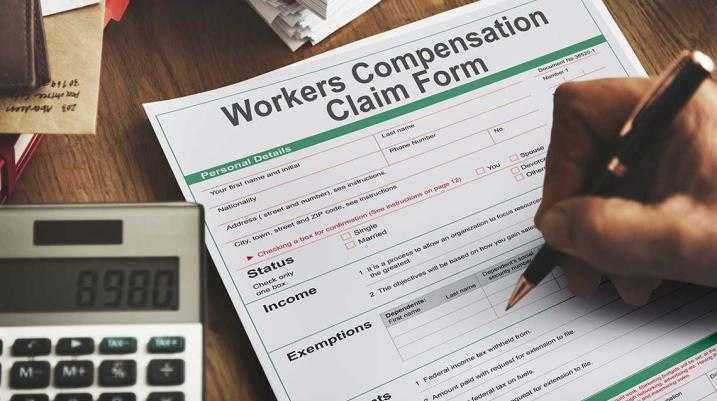No Workers' Comp for Contractors: How to Protect Yourself When Injured

Today, an increasing amount of workers are being labeled independent contractors instead of employees, which typically disqualifies them from the benefits of workers’ compensation insurance programs. Despite independent contractors working in some of the most dangerous industries, like transportation and delivery, they must find a way to pay for their own medical bills if they get injured on the job.
There are ways that independent contractors can ensure they have some support, even if they aren’t able to opt into a workers’ compensation program. However, before we touch on that, let’s talk about what workers compensation is and who is eligible to receive it. We’ll also touch on how being an independent contractor is different from being an employee.
What is Workers’ Compensation?
Workers’ compensation is a program established to cover an employee’s medical bills and lost wages in case they are injured at work. Through workers’ compensation, employees get these benefits regardless of who is at fault for their injury – and in doing so waive their right to sue their employer. However, the specifics of how much and for how long those benefits are paid vary from state to state. Usually though, workers receive compensation for medical bills and lost wages until they can return to work, and if they are unable to do so, much longer.
Not all workers are covered under workers’ compensation, though. Independent contractors are not covered by workers’ compensation insurance, because they are not technically employees. Although they do work for a business, they do so independently, and are therefore not entitled to the benefits of being an employee.
What Is an Independent Contractor?
Independent contractors are determined by the circumstances of each job, but generally if the one who hires the worker has the right to control or direct the result of the work and not how and what will be done, the employee is considered an independent contractor.
Independent contractors have become increasingly common as the gig economy comes to represent more of the total workforce. The gig economy refers to on demand services that don’t use full-time employees and instead utilize independent contractors as needed.
For example, Uber drivers make their own hours and work as their service is requested by users. Similarly, TaskRabbit connects people who need random tasks done with those who are willing to do those tasks, but only as requests arise.
The expansion of jobs like these means more and more workers are employed in a fashion that exempts them from receiving workers’ compensation benefits if they are injured on the job.
What Can Independent Contractors Do If They Are Injured On The Job?
One thing an independent contractor can do, long before any sort of injury would occur, is to look into getting their own workers’ compensation insurance. Depending on the state and circumstance, this could entail the worker buying their own private insurance or opting into a state program.
Another thing to keep in mind: To avoid any liability for an independent contractor's injuries, some businesses will only hire independent contractors if they have their own workers’ compensation insurance.
If a worker has their own insurance and they get injured working for a business that hired them, they would be eligible to receive workers’ compensation benefits. However, if they do not have their own workers’ compensation policy, what options do they have?
Independent contractors who do not have their own workers’ compensation insurance will have to pay for their own medical bills and won’t be able to recoup lost wages. They could pursue compensation from the company that hired them by filing a lawsuit, although this isn’t appropriate for every circumstance. An independent contractor would have to consult an attorney for more information.
Alternatively, an independent contractor may want to look into if they are really an independent contractor. Many independent contractors are misclassified as such by their employer, or voluntarily sign a contract that defines them as an independent contractor when they really aren’t.
Are You Being Misclassified?
Sometimes an employer will misclassify a worker who is, by law, a full-fledged employee as an “independent contractor” to avoid obligations that are associated with being an employee, such as overtime pay or even workers’ compensation.
Lawsuits against Uber and FedEx over the issue of worker classification were recently settled with different results. The lawsuit against Uber ended with drivers settling for $100 million, but without gaining employee status. FedEx drivers on the other hand were found to be misclassified as independent contractors and are now correctly labeled as employees.
In the short term, misclassification may benefit workers, who will likely earn a higher wage as an independent contractor. In the long-term, though, it could cost them if they are injured while working.
A worker's original acceptance of their classification may change when faced with steep medical bills and no replacement wages. When this happens, a worker may want to consult an attorney to determine if they are correctly classified.
If their employment status is found to be misclassified, they have a few options to get reclassified correctly. The first thing they should do is speak with their employer to try and have themselves reclassified. If their employer refuses, a worker can file a workers’ compensation claim with their state agency or file for unemployment with the state’s office of unemployment, and those agencies will investigate if the worker was misclassified.
Furthermore, a recent crackdown on misclassification by the U.S. Department of Labor’s Wage and Hour Division has led many workers who were previously labeled independent contractors to be correctly labeled employees. If you think you are being misclassified it is easier than ever to hold your employer accountable so don’t hesitate to report them.
Injured? Getting the compensation you deserve starts here.

Injured?
Not sure what to do next?
We'll guide you through everything you need to know.